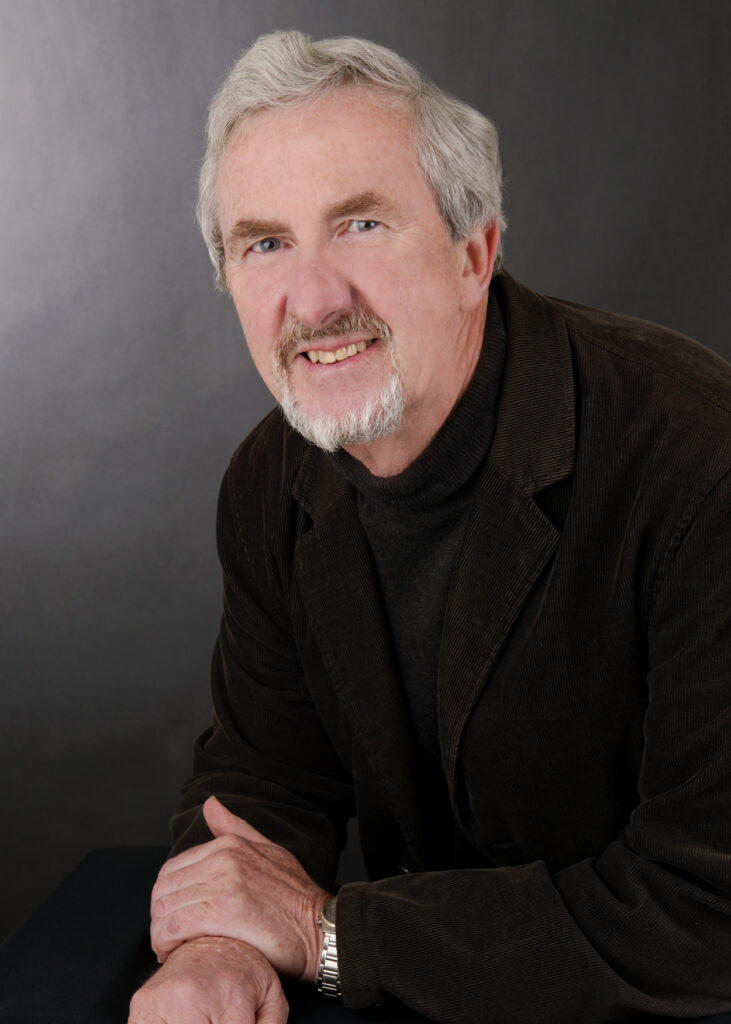The author was born in Belfast, Northern Ireland. As a young child he spent several years after WWII in Germany and Switzerland where his father worked for the United Nations Relief and Rehabilitation Agency (UNRRA). At his first school near Geneva only French was spoken. He remembers trudging to school through a snow-covered meadow sprinkled with snowdrops, towing his schoolbag on a sled.
In 1950, at the age of seven, he migrated to Australia with his family. There followed an idyllic childhood in Ocean Grove, a Victorian coastal town with seven miles of glorious, sandy beach. He passed most of his free time learning to surf, fishing in the nearby Barwon River or wandering the shore looking for washed-up treasure.

His later schooling was at Geelong Grammar School in Victoria. For a year he boarded at Timbertop, a part of the Grammar School, hiking in the Victorian mountains and fishing for trout in the streams and lakes nearby.
Despite many attempts to succeed at cricket and football, he was incurably injury prone. As a result, the sum of his adolescent years was an abiding love of fishing, surfing (including becoming a surf lifesaver), the Victorian bush and humanist literature.
During vacations at Melbourne University he carted hay, worked on a road gang, joined Australian volunteers in Fiji attempting to build homes for Fijians who needed no help, spent a night in a police lock-up in New Zealand for vagrancy and risked life and limb in a small gold mine in Victoria part-owned by his father.
After graduating in Law/Arts from Melbourne University, he began as an articled clerk with a firm of solicitors in Melbourne, but soon hankered after a life in more exotic places.
In 1969 he joined the Legal Department in Papua New Guinea, employed, both before and after the country’s Independence, first as a Crown Prosecutor for the New Guinea Islands region, then in Port Moresby as a legal adviser. For a year he acted as private members’ counsel to the House of Assembly drafting bills and motions for members, often begging them to leave a hotel bar nearby in order to introduce their bills in the House.
In 1978 he was headhunted by the Solicitor General of Hong Kong to join the Legal Department of Hong Kong as a legislative drafter. For the next 13 years he drafted legislation with a focus on laws to enhance and entrench the existing British legal system in preparation for the colony’s handover to Chinese rule in 1997. He was a member of two delegations to Beijing to explain unfamiliar concepts like British common law to sceptical Chinese officials. His happiest years were spent living with his family in a fishing village on one of Hong Kong’s outlying islands.
In 1991 he returned to Australia, joining the Attorney General’s Department in Canberra in 1992 and retiring as a senior drafter and consultant in 2010.
Apart from holidays in France, study in London (to obtain a Master of Laws degree) and revisiting Northern Ireland, he has travelled extensively in the Asia Pacific region. He now lives in Sydney with his wife Robyn, two adult sons and four grandchildren.
The author has written three previous novels: Up at Killen’s Corner, Cheung Chau Dog Fanciers Society and The Mine of Eternal Spring. They have all taken inspiration from his own experiences. They strive to achieve a memorable sense of place and to encapsulate, with humour, an era in recent history which has now passed.
Farewell Rabaul, his fourth novel, springs from his time as a Crown Prosecutor in Papua New Guinea during exciting and momentous events in the country’s journey to Independence.